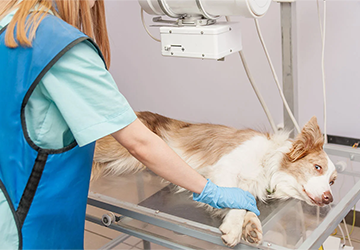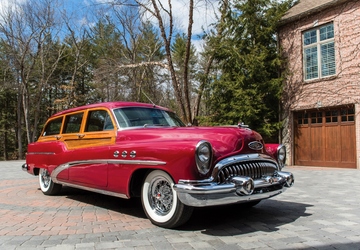Only and Comprehensive Pet Insurance
You want the best for your four-legged friend, including their health and well-being. When considering insurance, most people are torn between an accident-only policy and full coverage.
But what is the difference between the two, and which one do you go for yourself and, more importantly, your pet?
In this blog post, we'll explore the six significant differences between those two types of pet insurance so that you can make an informed decision based on your pet's needs and budget.
So, let's go into the best world of pet insurance for your furry friend.

Comparing Accident-Only and Comprehensive Pet Insurance: 6 Key Differences
Here are 6 of the most significant differences. By making these differences more specific in your understanding, you can make wise decisions on which insurance plan will be the most appropriate for your pet and your pocketbook.
1. Accident-Only vs. Comprehensive
Some of the key differences between accident-only and comprehensive pet insurance are related to the coverage range.
By definition, accidents will only cover the injuries and medical expenses that come from accidents. This includes a broken bone, cut, burn, or other physical trauma. This type of insurance is necessary to protect your pet from any arbitrary incident.
This does not include illnesses or preventative care. Comprehensive insurance, on the other hand, has a much broader scope of protection. Besides covering accidents, comprehensive insurance also covers illness and preventative care.
This means that when your pet develops a severe health condition, such as cancer, diabetes, or an immune system disorder, your comprehensive insurance will cover surgeries, medicines, and diagnostic tests.
Additionally, many comprehensive policies will come with coverage for routine care, including annual check-ups, vaccinations, and dental cleanings that keep your pet healthy and happy.
2. Comparing Costs and Premiums
The other significant difference between these two pet insurance policies is the cost and premiums under each policy. Accident-only pet insurance will have low monthly premiums compared to comprehensive plans.
This is based on this policy's scope of coverage; it does not cover problems such as diseases or maintenance care.
Comprehensive coverage typically carries a considerably higher monthly premium owing to the extended coverage. Protecting a broad range of health problems, accidents, illnesses, and routine care extends a comprehensive safety net for your pet's health.
The premium under comprehensive policies may initially deter you. Still, you need to consider the financial gain in the long term, significantly if your pet contracts a severe illness that requires expensive medication.
3. What Medical Expenses Are Covered?
Knowing what expenses each covers can help you compare accident-only versus comprehensive pet insurance. This type of insurance program usually covers the bills associated with an injury that occurs during an accident.
This coverage encompasses emergency veterinary care, surgeries, diagnostic tests, and medicines used to treat injuries. However, these plans do not offer illness protection or provide preventative care.
It covers a much more comprehensive range of costs. In addition to the accident-related expenses covered by an accident-only plan, comprehensive insurance also covers illnesses and preventative care-related costs.
This may include such costs as:
● Diagnostic tests and imaging
● Surgeries and hospital stays
● Medications, both prescription and over-the-counter
● Chemotherapy and radiation therapy
● Routine check-ups and vaccinations
● Dental cleanings and procedures
Comprehensive pet insurance covers a broader range of medical expenses, offering a more significant safety net for your pet's health.

4. The Role of Preventative Care
This is central to your pet's overall health and quality of life. The difference between an accident-only policy and a comprehensive pet policy lies mainly in the area of reimbursement for preventative care.
Services such as routine check-ups, vaccinations, and dental cleanings are not included in the insurance coverage designed for accidents only. Anyone who buys an accident-only plan must pay for these necessary services out of pocket.
In other words, preventive care is included in most comprehensive pet insurance policies. Scheduling routine check-ups, vaccinations, and dental cleanings helps detect possible health challenges facing your pets early, fully realizing the cost-saving benefit.
Comprehensive insurance with preventative coverage will contain costs through preventative care, enabling you to enjoy an affordable, happy, and healthy life with your pet.
5. Differences in Claim Limits and Payouts
The claim limits and payouts from accident-only and comprehensive pet insurance differ. Generally, accident-only insurance offers lower claim limits than comprehensive insurance policies.
There may be a cap on the amount one is likely to get from a single incident or injury. In addition, the kind of treatments or procedures being given tends to have exclusions, limiting the overall payout that may be earned.
Comprehensive pet insurance policies come with higher limits on the claims that can be filed and a more extensive range of coverage.
So, higher payouts are likely, for instance, when a pet requires expensive medical treatment, particularly surgery or long hospitalization.
Comprehensive insurance policies are less likely to exclude specific conditions, providing a better safety net for your pet's overall health.
This should mean that it will pay to investigate the limits and structures of any policy that you are considering with great care.
Look for annual and lifetime limits, and check out exclusions and restrictions that apply to claim abilities that are against particular conditions or for specific treatments.
6. Who Should Choose Which Insurance?
When choosing between accident-only and comprehensive pet insurance, consider your pet's individual needs and your financial standing.
Most pet owners are more concerned about their pets getting hurt at any given moment, and thus, this form of pet insurance is worth considering since it is typically the cheapest type.
If your pet is young and healthy and doesn't have a pre-existing condition or breed predisposition that will cause it to fall ill, an accident-only plan might be more feasible in terms of monthly cost.
Suppose more extensive protection is considered, covering many health-wise problems, including illnesses, accidents, and preventative care. In that case, nothing will match that of a comprehensive pet insurance policy.
In particular, pet owners who should get the comprehensive plans are those who:
● have an older pet or breed that may be predisposed to hereditary health conditions
● want to be worry-free, knowing that their pet is covered with a wide assortment of health conditions
● don't mind paying higher monthly premiums for such complete and healthy coverage
● place significant value on preventative care so that the pet remains healthy and happy
The ultimate decision to choose between accident-only and comprehensive pet insurance will be made only after considering personal needs and priorities.
Make an Informed Decision Now!
This is where the two types of pet insurance, accident-only and comprehensive, go completely off-topic. Having emphasized the significant differences between the two policies, it is time to take action and seek the most appropriate cover for your pet.
It presents just the right time to evaluate the specific health needs of your furry friend, what state your finances are in, and under which insurance you will have the best protection.
Be sure to realize that you are underinsured before a sudden accident or disease befalls you. Evaluate the different pet insurance products now, and choose the one that will provide peace of mind for you and your dearly loved pet.
Your pet relies on you to make good decisions for their health and well-being. Making the most suitable choice of pet insurance will protect your fur family member to the best of your ability!





